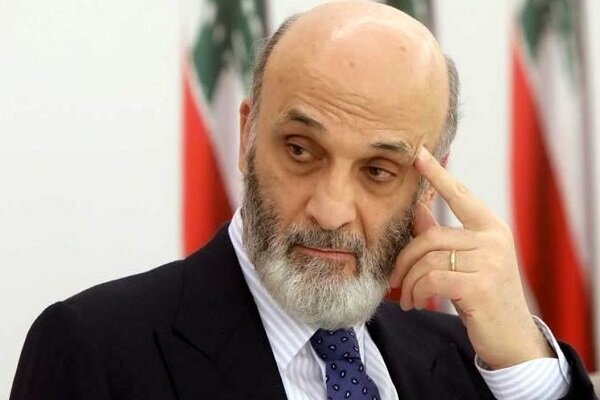Is Geagea pushing his ministers to resign?

BEIRUT—Lebanese Forces leader Samir Geagea continues to prioritize the slogan of “disarming Hezbollah,” particularly following the diminished influence of U.S. envoys in Lebanon's political landscape.
Simultaneously, Geagea has often expressed his annoyance with President Joseph Aoun’s rational approach on this matter, accusing him of being “excessively afraid of a civil war.”
“If the Lebanese state disarms any armed faction, this is not considered a civil war; rather, it is a natural action taken by the state to extend its authority over all its territory,” Geagea has said.
What Geagea and his ministers speaks of have failed to achieve anything noteworthy.
As he fears missing the opportunity ahead of the May 2026 parliamentary elections, Geagea is exploiting the slogan of disarming the Resistance as propaganda, and may not hesitate to press his ministers to resign and disrupt the government’s work for the sake of Lebanon’s enemies.
The anti-Resistance faction actively promotes the narrative that Lebanon is teetering on the brink of civil war, attributing the crisis to Hezbollah's refusal to relinquish its weapons needed for defending the country.“There is a reality that must be corrected, and if it is not corrected, they will force us to Syria, Israel, or another country,” Geagea said, adding, “If the government decides to seize ‘illegal weapons,’ anyone who violates this must be jailed.”
Meanwhile, the government concluded an agreement with the International Monetary Fund (IMF) to establish the so-called “Resident Representative Office in Lebanon.”
The agreement grants employees an extensive range of privileges and immunities, including unlawful exemptions from taxes and customs duties; unrestricted rights to buy, sell, and transfer gold and currency; and immunity from state inspections, confiscation, or arrest.
This non-sovereign agreement exposes the Western claims of reform as it did not obtain the approval of Parliament, which undermines what remains of sovereignty; if some in Lebanon believe that these alleged reforms are designed to serve the Lebanese, then they are delusional.
Pending the U.S. envoy’s return before the end of this month, Lebanon will not be given a free hand, as Thomas Barrack has repeatedly asserted in talks with those whom he has met in Beirut that Washington will exert greater pressure on Lebanon, especially after the failure of the U.S. and Israel’s aggression against Iran.
Reportedly, during his recent visit, Barrack listened seriously to the remarks of officials, explaining that the ongoing aggression, the prevention of the return of residents of the border villages, and the obstruction of reconstruction are matters that will complicate the task of disarming Hezbollah.
Informed sources reveal that Barrack will strive to persuade the Israeli side to cease its daily violations of Leban’s sovereignty in order to convince Lebanon that something is changing; he was frank by admitting that the war has not stopped at all, even if it is being waged by one party.
When the U.S. envoy was asked in surprise about his insistence on hurling the ball of fire at Lebanese officials, he replied: “Without a broad, firm, and stable agreement with Iran, and a complete cessation of the war on Gaza, it will be difficult to reach a solution in Lebanon.”
Anyone who imagines that Washington’s policies in the region preserves the rights and gains of the people is naïve. Remember how Iran was treated recently when U.S. negotiator Witkoff was promoting an imminent agreement, Israel launched a war against the Iranian people, before Washington joined in.
Since the announcement of the so–called state of Greater Lebanon in 1920, the country continues to be subject to foreign command, starting with the Egyptian-American agreement that ended the 1958 crisis and ending the 2024 ceasefire agreement.
Remember also that Israel’s first Israeli prime minister, Ben-Gurion, once stated that “Lebanon was a historical and geographical mistake, and that this mistake must be removed and corrected.”
This was before the founding of Hezbollah, when any environment conducive to the resistance project had to be marginalized and deprived of the most basic living services.
Great founder of Lebanon’s resistance, late Sayyed Abdul Hussein Sharaf al-Din, explains in a letter to then-President Bechara El Khoury: “The ancient Jabal Amel (Shiite strongholds) suffers humiliation and poverty at the hands of the Zionists simply because it is fulfilling its duty. Concurrently, it is being deprived of its basic rights, and its lands are even being invaded. If you don’t have the ability to protect it, you will surely fail in your own story and in protecting Lebanon as a whole.”
Sayyed Sharaf al-Din’s words reveal the extent oppression historically inflicted on the pro-Resistance strongholds since the establishment of the Zionist entity.
The problem at its core is the extreme, cheap predisposition of the anti-Resistance team, including Geagea, who has become accustomed to flattering foreign powers in exchange for a handful of humiliating grants.
Those who constantly deafen us with talk of reforms and prosperity have forgotten that Israel is manipulating them.
The battle is: to be or not to be; to be an honourable resistance or a humiliated mercenary. Nations who have squandered the guarantees of their dignity and strength have drowned in seas of humiliation and disgrace irretrievably.
This culture of honourable life has been enshrined by Imam Ali (AS), who stipulates: “If you give up, you are dead even if you are alive. But if you die refusing to give up, that is life itself.”
Leave a Comment